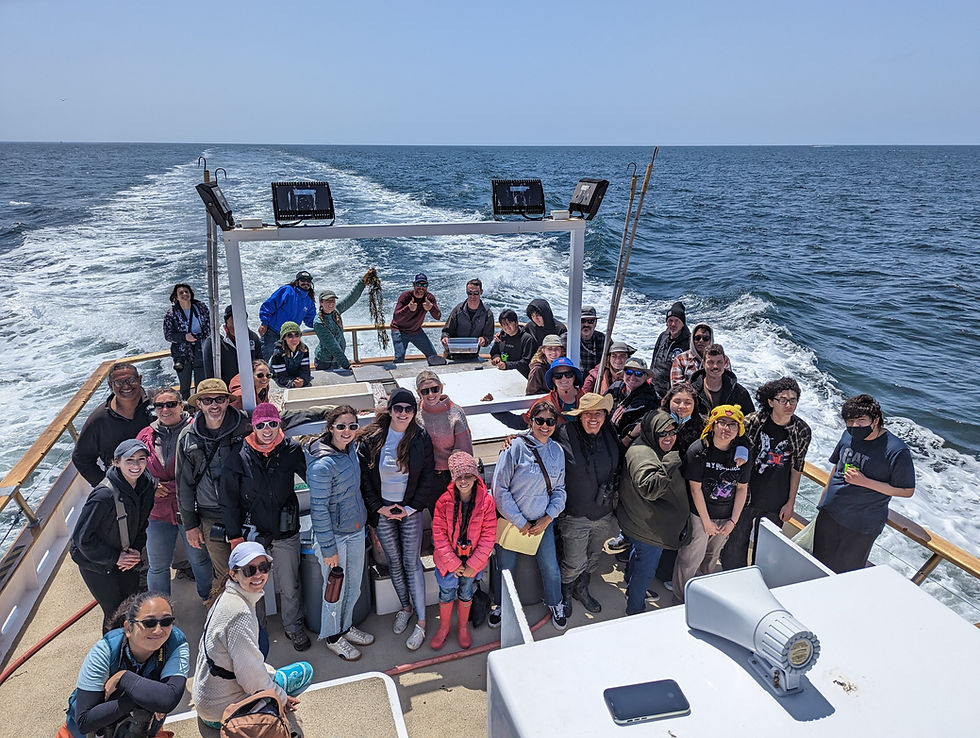Wildfires and Climate Change — Talk and Live Lesson
- Nov 22, 2021
- 2 min read
The Climate Science Alliance is excited to join the San Diego Natural History Museum in co-hosting a series of climate change talks tailored to both the community and youth. View the latest talk, "Fueling the Burn" by partnering researcher Krista West, and youth lesson “Up in Smoke” featuring Climate Science Alliance team member Ana Lutz-Johnson, in today’s blog!

The Climate Science Alliance is excited to join the San Diego Natural History Museum in co-hosting a series of climate change talks tailored to both the community and youth. View the latest talks, "Fueling the Burn" by partnering researcher Krista West, and youth lesson “Up in Smoke” featuring Climate Science Alliance team member Ana Lutz-Johnson, below.
Fueling the Burn
After a wildland fire burns through chaparral and coastal sage scrub, non-native grasses are the first to come back. These invaders are flammable and “flashy” fuels, often spreading flames faster than native plants in future burns. In this talk, Krista West, from San Diego State University and project researcher for the Connecting Wildlands and Communities project, presented her work using satellite imagery to map grasses in Southern California shrubland ecoregions. This research helps us better understand the effects of climate change on shrublands, the consequences of grass invasion, and how these changes might affect the fire regime.
Up in Smoke
Higher temperatures, decreased rainfall, and prolonged drought—all of these contribute to more wildfires. Nature recovers from normal fires, but their increasing frequency and intensity are a problem for our plants and animals. Joined by the Nat’s Community Engagement Manager, Lauren Marino Perez, Climate Science Alliance team member Ana Lutz-Johnson presented on wildfires’ unique relationship to California habitats, how climate change is impacting wildfire frequency and intensity, and what we can do to help.
Throughout 2021, The Nat and Climate Science Alliance are offering a series of evening talks and daytime lessons around climate change, their impacts to our region, and what we can do to help. These offerings will take place seasonally and dive into the astoundingly varied consequences of our changing climate. The more we know, the better we can respond to what's happening.
For upcoming events in the Nat Talks Climate Series and Live Lesson Climate Stories, please visit: www.sdnat.org/calendar/nattalks-and-films/





Comments